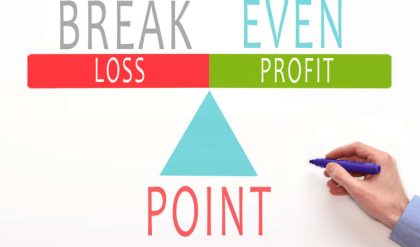Markets are efficient at producing private goods, largely because producers and consumers have the right of ownership of the resources exchanged in an economic transaction involving a private good. However, markets are less efficient when property rights do not exist.
Many resources that are directly, or indirectly, used in an exchange have no specific or identifiable owner, and are collectively available for everyone to use. For example, goods which are transported by ship use the world’s oceans, but there is no charge because on one owns the sea. Such resources are called ‘common property resources’, and they are free tom use because it is too expensive, or physically impossible, to establish ‘legal boundaries’ which prevent ‘free-riders’ from gaining the benefit, or indeed, from over-exploiting or misusing the resource.
Examples of common property resources include; oceans, rivers and canals; beaches; the air; roads and pavements, and even images, words and ideas. Because property rights cannot be established, the effectiveness of markets in terms of the allocation, pricing and rationing of these resources is greatly reduced.
The effects of a lack of property rights
The absence of property rights can lead to a number of consequences:
1. Opportunism may be encouraged, with individuals or groups exploiting the lack of private ownership. For example, because it is not possible to put a ‘boundary’ around a song, other individuals can ‘steal’ the music and lyrics. With modern technology, it is easily possible to copy CDs without paying for them. This is another example of the ‘free rider’ problem, which means that the price mechanism is less effective at pricing goods that can easily be stolen.
2. Misuse of scarce resources is also likely, such as dropping litter on pavements, or deliberately spilling oil in the sea. This problem is made worse is accompanied by moral hazard – that is, assuming that someone else will pick up the litter, or clean the seas.
3. Over-use of resources, such as the depletion of rain forests, over-fishing, and traffic congestion, is also associated with a lack of property rights. Over-use can also result in the general exhaustion of other natural resources, including the environment itself. The environment is, indeed, a scarce resource which can be depleted at will because so much of it cannot by protected by establishing property rights.
Remedies
Granting or extending property rights
Though complex to design and implement, government can grant property rights over scarce resources in an attempt to protect them from opportunism, misuse, and over-use. According to Ronald Coase, allocating property rights will encourage the appointed owners to protect the resource by allowing the owners to sue those who exploit the resource. When applied to resources that are under attack from pollution, extending property rights will enable the owners to sue the polluters.
For example, the National Rivers Authority, now part of the Environment Agency, was created with powers to act ‘as if’ it owned the UK’s rivers. This allowed the Authority to police the rivers and sue polluters, and opportunists like poachers. Once rights are allocated it may be possible to identify those individuals, firms or organisations that abuse or misuse the environment. Supporters of the extension of property rights see it a crucial to the formation and effective operation of markets.
Property rights can be extended by creating laws to protect physical property; intellectual property, such as copyrights to protect ideas, songs, music, books and film; patents, to protect inventions; and ‘trade marks’ to protect commercial images and logos.
Property rights can also be extended by creating ‘territorial waters’ around a coast. Once rights are established the owners can police the use of the resources, and penalise those who misuse the resource.






Comments are closed.